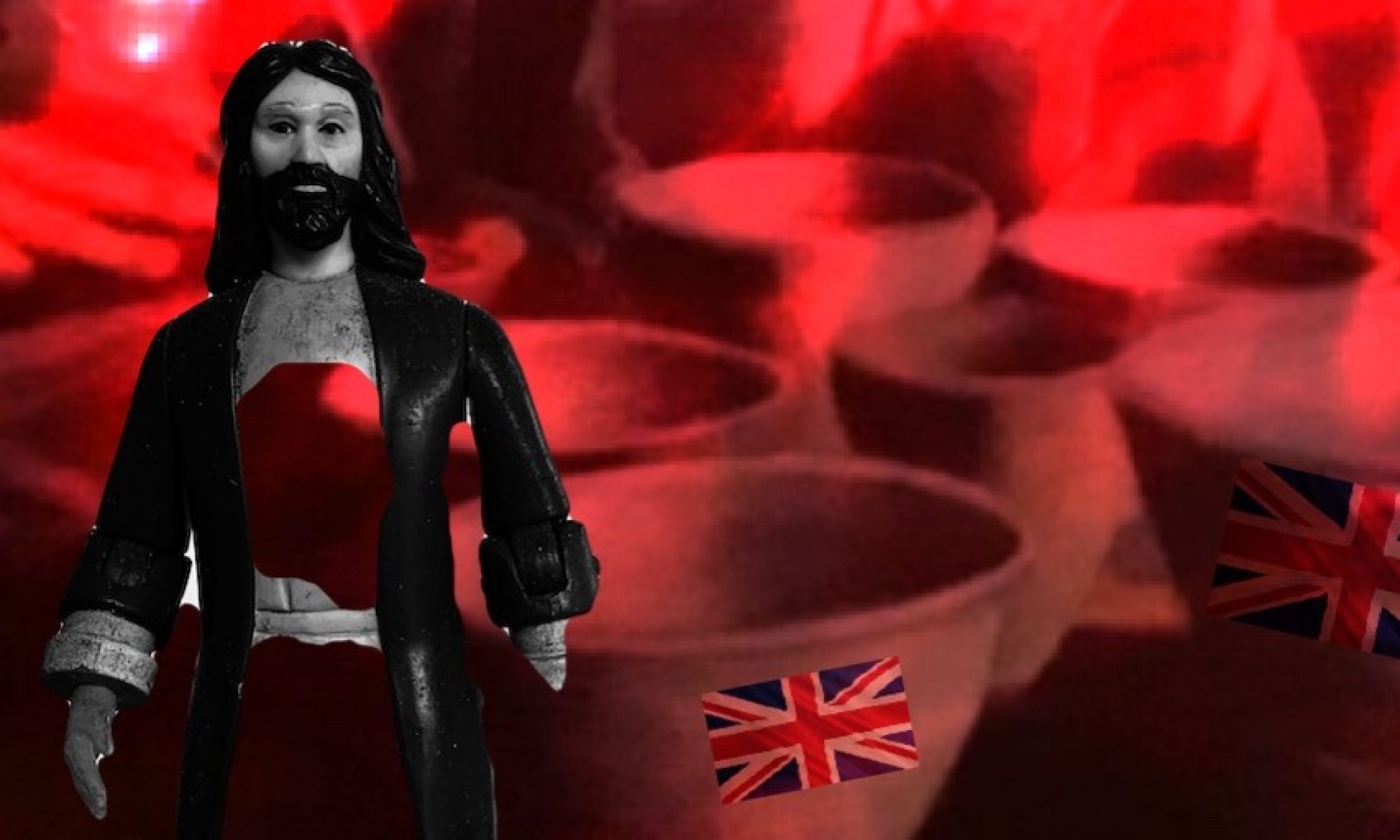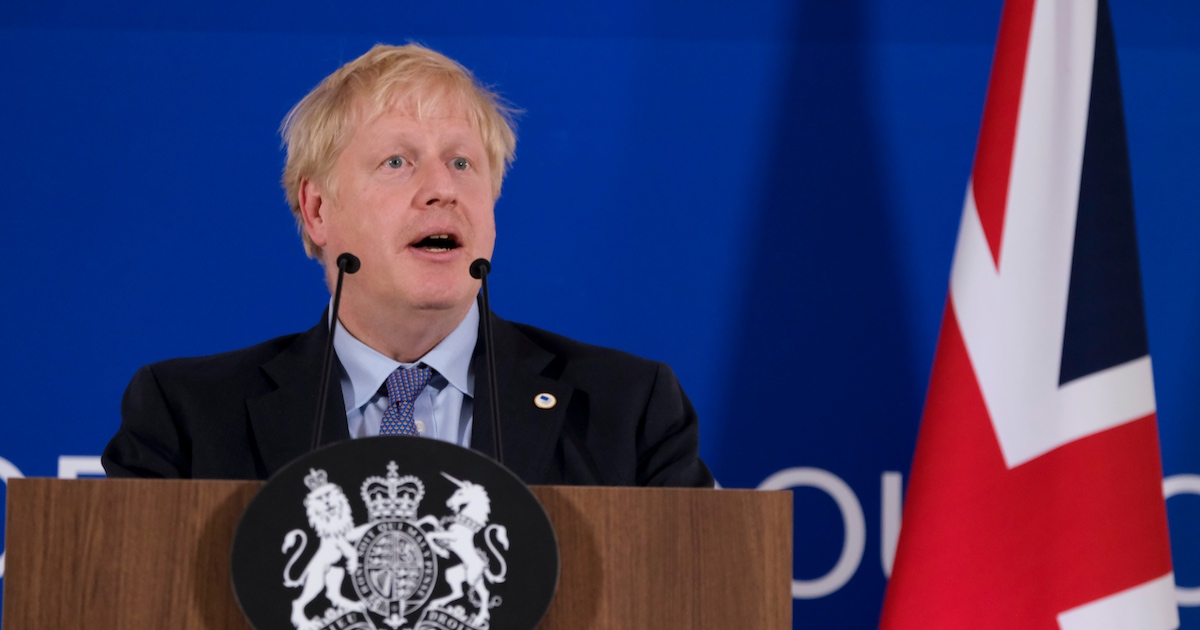“Flag waving is a popular propaganda technique, meaning that an action is justified on the grounds that doing [what is promoted] will make one more patriotic” – Nicole Hein, Spinning Coverage, 2008
We twenty-first century Brits like to wave the Union Jack. Bunting for festivals. A little flag to wave on the last night of The Proms. Village fetes and street parties. It’s a badge of justified pride and identity for sporting teams, the military and iconic exports like the Mini.
We are, or most of us were, proud of our flag. We know what it means, or thought we did. But its meaning seems to be changing. It is suddenly plastered across everything from Priti Patel’s living room to the front doors of Lidl?
This flag has the weight of our history woven into its fabric, beginning life as a maritime flag in the eighteenth century, ordered into being by King James VI and I, the first king of the United Kingdom.
Three centuries later it is now as much a cultural icon as a national flag. And it’s as true of our politicians as the people they’ve been elected to govern. British politicians have confidence in their vision for this green and pleasant land, don’t they? When they pose with the Union Jack, don’t they do it out of pride in the shared accomplishments of the United Kingdom?

It’s not for our politicians to misappropriate the flag, to weigh it down with exclusive nationalism instead of good, old fashioned “true” patriotism. Scoundrels like the former President of the United States of America, Donald Trump, do that. Our leaders treat our flag with dignity, taking their responsibility as custodians seriously.

Or at least they used to. Until Boris Johnson, until Brexit.
Now the mood in the land is shifting. And like the Saint George Cross before it, to many the Union Flag is becoming loaded with nationalism. People who want to still see the flag as a positive symbol wonder where it is heading.
And the Union Jack is everywhere now. The world of commerce reflects the political climate. The German supermarket Lidl has a heart shaped Union Jack on its doors. Why is that? They didn’t need to carry that symbol before Brexit.

The Co-op too were roundly mocked for their ice cubes. Not because people are ashamed of the Union Jack, quite the opposite, it was because it was on packaging that proclaimed the ice was “Made with British water”. As if water now must carry a nationality, like our happy British fish. These examples are becoming more common all the time.
Now when our politicians fly the flag it seems not so much to proclaim who we are, but to appeal solely to our emotions. If you disagree with me you must be unpatriotic, because I have the Union Jack at my back. In the age of populism too many politicians aren’t after debate and policy based on facts. No, they’re just after our emotions. They want us to act on our feelings. To take our country back. You have to ask where to, or from whom. They’re less exact on that.
“The ideal subject of totalitarian rule is not the convinced Nazi or dedicated communist, but the people for whom the distinction between fact and fiction, true and false, no longer exists” – Hannah Arendt
Flag waving is now as endemic in UK politics as Covid-19 is in the United Kingdom itself. Health Secretary Matt Hancock is reported to have backed calls to have the vaccine developed by Oxford University and AstraZeneca packaged in a Union Jack. Is Matt Hancock hoping to inject you metaphorically with nationalism while fighting the Covid-19 virus? Note that Pfizer didn’t insist on the German flag on their packaging. In any case these vaccines are the product of international cooperation.
This misplaced patriotism leads to this ridiculous situation: “Patients refusing Pfizer Covid-19 vaccine to ‘wait for English jab’, doctor claims” – The Daily Mirror, Jan 7, 2021

Maybe Matt Hancock is hoping you won’t notice the UK’s world beating Covid-19 death rate. He hasn’t suggested draping the coffins of our 100,000 CV-19 dead in Union Jacks. Why not honour the glorious dead, the foot soldiers of the War On Covid?
And it’s dangerous now. This fetish for the flag, as cabinet ministers display limp Union Jacks on stunted flagpoles in their homes for TV interviews, as if daring you to challenge them and be charged with being unpatriotic. Are we expected to not ask questions when we see the flag? To buy whatever it has been plastered onto? Be it a political project or a bag of ice?
Tory MPs seem under orders to stamp their social media posts with Union Jack emojis, like digital bunting. But the more the Union Jack is raised the more it seems to suggest we don’t know where we are going as a country. It raises more questions than it answers. Boris Johnson got Brexit done, but the resulting problems cannot be simply waved away.
Maybe leading Brexiter, Foreign and Commonwealth Secretary, Dominic Raab, can help explain the situation with some of his unique wisdom. “We’ve been humiliated as a country in these talks with the EU,” Raab asserted in June 2019, when he made his pitch to be Conservative Party leader, “We’re divided at home, and demeaned abroad.”
It’s hard to argue with that. Can a pandemic of flags cure our ills? Are the flags covering up more than coffins? Let’s hope this flag waving patriotism is not, as Samuel Johnson said, “… the last refuge of scoundrels” (Remember he was talking of untrue patriotism, he also believed it could be “true”). But words and deeds must match.
Because if it is a refuge of scoundrels, the viral flag waving, the lethal nationalism of the 20th Century, so replete with flag displays, tells us that the next coffin to be covered with a Union Jack could be the United Kingdom’s.


